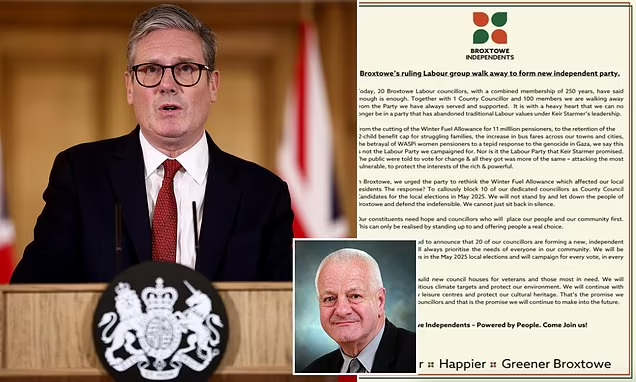In a surprising turn of events, local councillors have begun to resign in response to what they describe as a disconnection between their values and those of Labour Party leader Keir Starmer. The departures have ignited a lively debate within the community, prompting discussions about the future of local governance and the overarching direction of the Labour Party. As Starmer’s leadership continues to evolve, the implications of these exits may resonate far beyond the local level.
Local Councillors Depart as Starmer’s Values Spark Debate
The wave of resignations has sent shockwaves through the local political landscape as several councillors announced their departures over the weekend. Their decision stems from a perceived misalignment with Starmer’s leadership style and policy priorities, particularly around issues such as social justice, community engagement, and environmental sustainability. Many of these councillors have been stalwarts of the party, advocating for progressive policies that resonate with their constituents.
In their resignation statements, the councillors expressed a heartfelt commitment to the values they believe the Labour Party once championed but feel are now being sidelined. They argue that Starmer’s focus on broad electoral appeal has led to a dilution of core Labour principles, leaving many community members feeling disillusioned. The councillors call for a return to grassroots engagement and a recommitment to the party’s foundational ideals, emphasizing the importance of representation and accountability.
Community members have rallied behind the departing councillors, with many expressing solidarity and support. Local grassroots organizations are organizing forums and discussions to address the concerns raised by the resignations. The atmosphere is charged with enthusiasm as residents seek to reclaim their voices in the political process, illustrating a vibrant democracy in action. The collective call for transparency and integrity is resonating widely, demanding that the Labour Party not only listens but acts.
Uproar in the Community: Starmer’s Leadership Under Fire

https://x.com/MarioNawfal/status/1874554907342065847
As the dust settles from the councillors’ departures, the community is buzzing with conversations about Starmer’s leadership and the future of the Labour Party. Critics argue that Starmer’s approach has fostered a disconnect between party leadership and the grassroots level, raising questions about the effectiveness of top-down governance. The councillors’ exits have opened a floodgate of dialogue about the importance of staying true to one’s values in politics, particularly in a party that prides itself on being the voice of the people.
In response to the uproar, there are calls for a community-centered approach to decision-making, emphasizing the need for councillors who genuinely reflect the community’s beliefs and aspirations. Activists are advocating for more inclusive policies that resonate with diverse voices, particularly those from marginalized groups. They argue that the party must refocus on its role as a champion for social change, rather than merely a political entity seeking votes.
While the situation remains fluid, it is clear that the debate surrounding Starmer’s leadership will continue to shape local politics. Supporters of the Labour leader argue that he is navigating a challenging political landscape and attempting to broaden the party’s appeal. However, the chorus of dissent from local councillors and community members underscores the critical importance of alignment between leadership values and grassroots expectations. As the community mobilizes, it is likely that this debate will influence not only local politics but also have implications for the party’s national strategy.
As local councillors grapple with their departures from the Labour Party, the ensuing conversations around values and representation are igniting a renewed sense of political engagement within the community. The enthusiastic response from residents highlights a vibrant democratic process, reminding us that political parties exist to serve the people. The ongoing debate surrounding Starmer’s leadership presents an opportunity for reflection, growth, and ultimately, a recommitment to the principles that have long defined the Labour movement. As the situation unfolds, one thing is certain: the voices of the community will not be silenced.














